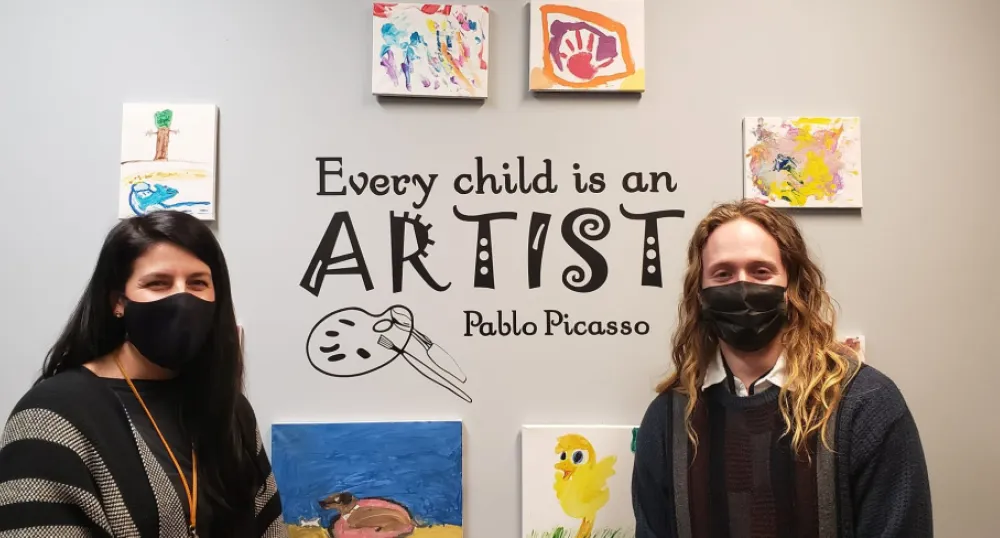Social work student offers support - and receives it - in job placement

When Mark Wiebe finished his on-the-job training in social work last fall, he didn’t have to go far to find a place that would hire him.
He was already there.
“I finished my job placement and that transitioned straight into work,” says the 24-year-old who graduated in January with a master’s degree in social work from St. Thomas University.
Wiebe was still a student when he began a job placement with Child and Family Services in Charlottetown last September.
There was a need for social workers, especially in the field of child protection, and he knew he wanted to help.
He was asked, early on his placement, if he’d consider working at the office full-time when he finished school, says Wiebe.
“And I said yes – because I know that’s what I wanted to do from Day 1.”
Wiebe knew he wanted to work in child protection from a young age, after seeing a friend struggle with their mental health.
“And I knew that I wanted to do something in the helping field.”
So, he chose social work.
While social work can focus on several areas, Wiebe’s primary interest was in social justice.
That passion for social justice is what Danielle Ramsay says she appreciates most about the addition of Wiebe to their workplace.
Many students get into social work “ready to change the world,” she says.
However, the path to social justice isn’t always a straight one, says Ramsay, who supervised Wiebe throughout his placement, overseeing his day-to-day duties.
“There’s lots of roadblocks and that’s where you can use that social justice drive.”
You just have to be creative how you do it, she says.
“You can advocate for income support for your clients. You can advocate for services. You can advocate for housing. You can use your voice and your skill to support your client.”
Wiebe says this reassurance from Ramsay and the guidance from his colleagues was crucial to his success during his placement.
“If there wasn’t that support, that connection, and that communication, I might not be here.”
Ramsay recalls what it was like being a student entering the field—the worry you might make a mistake or forget what you learned, and the uncertainties surrounding the complexities of child protection.
“I remember it vividly,” says Ramsay, who has been a social worker since 2011.
She took some time, before Wiebe’s arrival, to think about what she would have wanted out of the experience as a student.
“What I tried to do with Mark, and hope all mentors do, is to train students to be the kind of social worker they would want to have on some of the hardest days.”
Wiebe says Ramsay was always there to answer his questions and adjust to his learning style, which helped build his confidence.
“It was almost like having a phenomenal teacher or professor who was with you every step of the way.”
Ramsay also encouraged Wiebe to shadow other workers and join other teams, too—so he could draw from their professional practices and develop his own ideas and approaches.
“Nothing was out of my reach,” says Wiebe. “All the learning experiences were ready and available for me.”
Fostering that passion for child protective social work is crucial to recruitment, says Ramsay.
And Wiebe says he received that support every step of the way.
“They made me feel valued here as a student—and now as a worker.”
For more information on opportunities in social work for the Government of PEI, visit: Social Worker Positions
